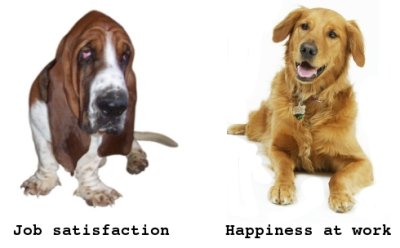 “Happy, yes. Satisfied, no. There is a difference. I’m just not letting the latter sully the former.”
“Happy, yes. Satisfied, no. There is a difference. I’m just not letting the latter sully the former.”
~Dennis Martin, rally driver, husband, and father
That lead in an e-mail Dennis sent me got me thinking about the functional difference between being happy and being satisfied. I had noted that when we last met at a rally in the Upper Peninsula of Michigan, he’d seemed happy. I was right, but I would have been wrong to assume that he was satisfied. What’s the connection between the two, and what can we learn by separating them?
I have been Dennis’s co-driver through many glorious and not-so-glorious adventures at speed. We grew up on course notes in U.S. rallying, where the co-driver actually gets to contribute to the success of the team by honing skills in describing the road ahead, in a car, at speed. Prior to course notes, co-drivers were little more than navigators and ballast. Without the inception of course notes in U.S. rallying, I probably would have sought another hobby 20 years ago.
Dennis is the ultimate “go for it” guy—win or crash. Sometimes we crashed; other times we won. His concepts of right and wrong are locked in. He’s opinionated and stubborn, and operating with those traits, he would occasionally buck the system and end up appearing relatively unhappy because of his dissatisfaction. So occasionally, dissatisfied meant unhappy.
Satisfaction to Dennis was generated from a Kaizen-type constant improvement mentality. He didn’t have to win…he did have to feel he did better every time he went out there. Oh. Did I mention he’s an engineer by education? That makes him capable not only of measuring the results, but tracking and obsessing about them. He could be satisfied, but still appear unhappy. In retrospect, I don’t think he (or I at the time) understood where happiness came from.
Here’s the breakdown
Satisfaction is the result of a met expectation. Get what you expect and you’re satisfied. Expectation is the purview of the Knower/Judger. It’s our K/J that assesses what should happen (whether that’s statistically accurate or not), and we feel good or bad about the results based upon whether or not the expectation was met.
That can apply to BHAGs (big hairy-assed goals) or to a two-foot putt on the 18th green. I can measure my level of satisfaction about my retirement investments, or that sip of local craft brew I just experienced. We all have expectations about everything, so we’re all subject to varying levels of satisfaction. Make sense?
So where does happiness come from?
I love Dennis’s logic. He doesn’t let the latter sully the former. He clearly separates the two. And that’s because happiness lives in the Learner/Researcher. It’s not dependent on meeting expectations. It’s not dependent on other people (although my experience is that one can be happy enjoying a relationship, as long as the expectations of the other person are not used to measure your happiness level).
I see joy as a primary component of happiness. Think of the things that bring you joy. For me, it’s certain types of music. Majestic mountains. Giggling children. Rambunctious dogs. Warm hugs. I’m talking warm, fuzzy stuff here. Not the pragmatic “I put 100 hours in this project and it’s met all my expectations.” See how the latter is a K/J game we play with ourselves? Happy can just simply overtake us…catch us by surprise. Or it can be a general condition, as Dennis says…not sullied.
Separating happiness from satisfaction is parallel to separating one’s L/R from one’s K/J. As with the personas, there is a place for both happy and satisfied. You might want to decide that being satisfied is not a prerequisite to being happy. There’s no “should” in being happy. There’s no “have to.” No rules. There’s joy and delight and discovery, and elation and bliss and ecstasy—all very L/R terms


